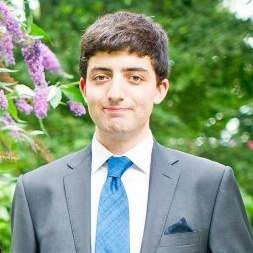The Hallé Orchestra, led by Sir Mark Elder, followed their award-winning 2009 Götterdämmerung with a concert performance of Die Walküre over two nights, prefaced by Gerard McBurney’s new work, The Madness of an Extraordinary Plan. With an array of famed soloists, Elder masterminded a triumph, with the magnificent Hallé showing their quality on the concert stage.
The Madness of an Extraordinary Plan is a drama for three actors, supported by lighting and orchestral excerpts from The Ring. The central figure is Richard Wagner, played by Roger Allam (The Thick of It), reading from the composer’s letters, essays and conversations, and interacting with two supporting figures, who read from others’ writing to and about Wagner. The work shows the composition of various elements of The Ring in the circumstance of Wagner’s political activism. Interesting links were made with the present, serving to give context to the Hallé performance. Most striking of these was the likening of the descent into Nibelheim to the industrial Manchester described by Friedrich Engels. Many other themes were suggested, but the nature of the piece as a brief introduction to Wagner and Walküre prevented full exploration. It was, however, a useful prologue to the opera to follow, and Allam’s Wagner was very well-acted.
Though Acts II and III were presented on the following day, the performance might nearly have been as one. Elder’s sense of structure drove the music at precisely the right pace through the whole opera. Yvonne Howard was a late replacement as Sieglinde, and despite singing from the score she gave a touching performance, her voice carrying a sense of the young Wälsung’s innocence. Clive Bayley’ Hunding was suitably powerful and contemptuous, filling the sound-space with great conviction. The finest performance, though, came from Stig Anderson as Siegmund. He captured every nuance of the role, rising from exhaustion to ecstatic joy at the end of Act I. The Orchestra played very well indeed to Elder’s high demands. The lower strings were particularly impressive, giving nervous menace to the prelude and lyrical tenderness later. One or two dramatic moments were slightly cautious, but overall the playing was excellent.
Elder’s ability to craft a passage or act into good shape was evident throughout, with the later acts growing in intensity to powerful climaxes. The characters themselves were well crafted by the singers. Wotan’s struggle with Fricka gave a hint of his diminishing powers, and Susan Bullock as Brünnhilde gave a full spectrum of emotion from young confidence, defiant anger and, faced with Wotan, childlike fear. Brünnhilde’s development from early innocence to tragedy commanded pity and respect by the time she came to be left to sleep. Similarly, Wotan’s rage and subsequent shift to sorrow at leaving Brünnhilde, was very well engineered by Egils Silins. Elder warned the audience before the start of the second night that all was not well with Silins’ voice, and that a deputy Wotan was hurrying up the M6. The deputy was not needed, however, as Silins gave no indication of ailing. He sang in turns with tremendous power, quiet anger and tragic resignation when required, all the while underpinned by an equally varied orchestral palette. The Hallé played magnificently throughout, with hauntingly touching solos from cor anglais and cello. The large brass and percussion sections were excellent, always achieving an ideal sound.
The two evenings of Walküre were very successful, and the standing ovation was well deserved. The performance was recorded, and listeners will wait eagerly for the release of the recording, and, hopefully, completion of the Hallé Ring in the next few years.


